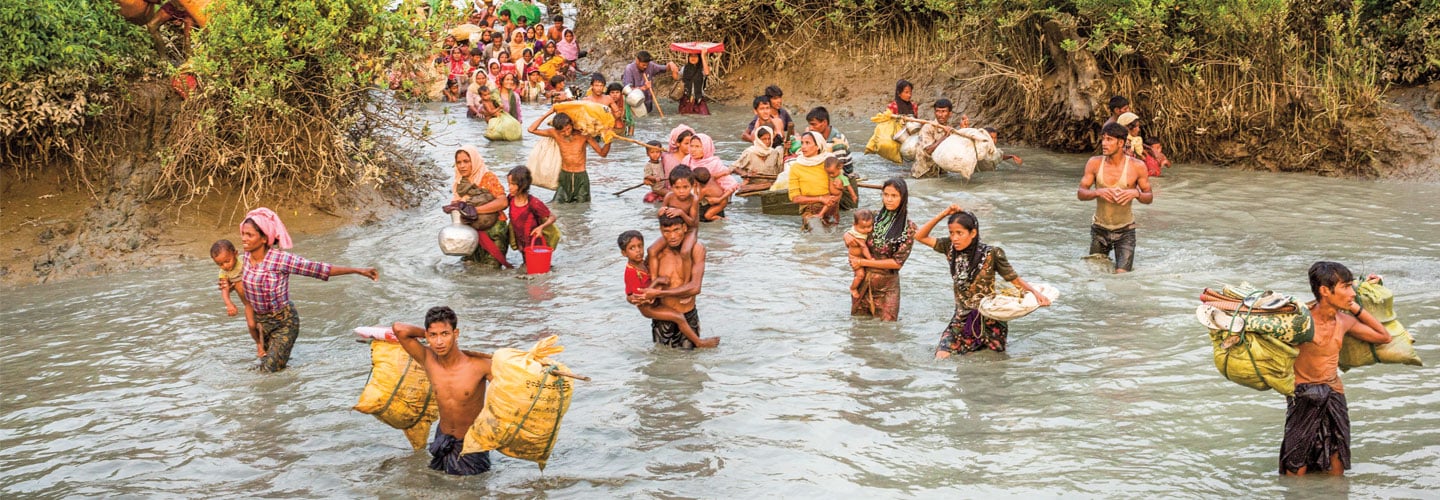The Rohingya people, an ethnic minority predominantly residing in nana4d Myanmar’s Rakhine State, have faced severe persecution and human rights abuses for decades. The international community has increasingly recognized the dire situation of the Rohingya, who have been subjected to violence, displacement, and systemic discrimination. This article delves into the history, current conditions, and efforts to address the plight of the Rohingya, highlighting the urgent need for a comprehensive and compassionate response.
Historical Context
1. Origins and Early Settlement: The Rohingya are a Muslim ethnic group with roots in the Rakhine region of Myanmar. Historical records suggest that the Rohingya have been present in Rakhine State for centuries, with their ancestors arriving as early as the 8th century. Despite this long history, their presence has been a point of contention, with many in Myanmar viewing them as illegal immigrants from Bangladesh.
2. Colonial Era and Post-Independence: During British colonial rule (1824-1948), the demographics of Rakhine State shifted as labor migration was encouraged within British India. This movement further complicated ethnic relations in the region. After Myanmar’s independence in 1948, the Rohingya faced increasing marginalization and were denied citizenship under the 1982 Citizenship Law, rendering them stateless.
3. Rising Tensions and Violence: Tensions between the Rohingya and other ethnic groups in Rakhine State have periodically erupted into violence. The most notable recent outbreak occurred in 2012, leading to widespread displacement and further exacerbating the humanitarian crisis. The Rohingya’s lack of legal status and protection has made them particularly vulnerable to abuse and exploitation.
Current Conditions
1. Displacement and Refugee Crisis: The most severe crisis rokokbet for the Rohingya began in August 2017, when the Myanmar military launched a brutal crackdown in Rakhine State following attacks by Rohingya militants. This operation, characterized by mass killings, sexual violence, and arson, forced over 700,000 Rohingya to flee to neighboring Bangladesh, where they now live in overcrowded refugee camps under harsh conditions.
2. Human Rights Violations: The United Nations and various human rights organizations have documented numerous atrocities committed against the Rohingya, including extrajudicial killings, gang rapes, and the burning of villages. These actions have been described as ethnic cleansing and genocide by international observers. The Rohingya in Myanmar continue to face severe restrictions on their freedom of movement, access to education, and healthcare.
3. Living Conditions in Refugee Camps: The Cox’s Bazar refugee camps in Bangladesh, home to the majority of displaced Rohingya, are among the largest in the world. Living conditions in these camps are dire, with inadequate access to clean water, sanitation, and healthcare. The refugees rely heavily on international aid, and the protracted nature of their displacement has led to significant challenges in maintaining their well-being and security.
International Response
1. Humanitarian Aid and Support: Various international organizations, including the United Nations High Commissioner for Refugees (UNHCR) and non-governmental organizations (NGOs), have been providing essential aid to the Rohingya refugees. This support includes food, shelter, medical care, and education. However, funding shortfalls and logistical challenges continue to hinder the effectiveness of these efforts.
2. Diplomatic Efforts and Advocacy: The international community has called for accountability and justice for the atrocities committed against the Rohingya. Diplomatic efforts have included sanctions against Myanmar’s military leaders and advocacy for the Rohingya’s rights at international forums. Despite these efforts, significant obstacles remain in achieving meaningful change and ensuring the safe and voluntary return of the Rohingya to Myanmar.
3. Legal Action and Accountability: In November 2019, The Gambia filed a case against Myanmar at the International Court of Justice (ICJ), accusing it of violating the Genocide Convention. The ICJ’s preliminary ruling in January 2020 ordered Myanmar to take measures to protect the Rohingya. While this legal action represents a significant step towards accountability, the implementation and enforcement of these measures are still uncertain.
Path Forward
1. Repatriation and Resettlement: A sustainable solution to the Rohingya crisis requires a safe, voluntary, and dignified repatriation process. Myanmar must create conditions conducive to the return of the Rohingya, including granting them citizenship, ensuring their safety, and providing access to essential services. International actors must continue to pressure Myanmar to comply with these requirements.
2. Long-Term Integration and Support: For those Rohingya unable or unwilling to return to Myanmar, long-term solutions such as integration into host communities or resettlement in third countries should be considered. Host countries like Bangladesh need ongoing support to manage the refugee population and promote social cohesion. International resettlement programs can also provide a lifeline for the most vulnerable.
3. Continued Advocacy and Awareness: Raising awareness about the Rohingya crisis remains crucial. Advocacy efforts should focus on maintaining international attention and support for the Rohingya’s plight. Grassroots movements, media coverage, and educational initiatives can play a vital role in fostering empathy and driving action.
Conclusion
The Rohingya crisis is a profound humanitarian issue that demands urgent and sustained attention from the global community. Addressing the complex challenges faced by the Rohingya requires a multifaceted approach, encompassing humanitarian aid, legal accountability, and long-term solutions for repatriation and integration. As the world confronts this ongoing tragedy, it is imperative to uphold the principles of human rights and dignity, ensuring that the Rohingya are not forgotten and that their suffering is met with compassion and justice.



